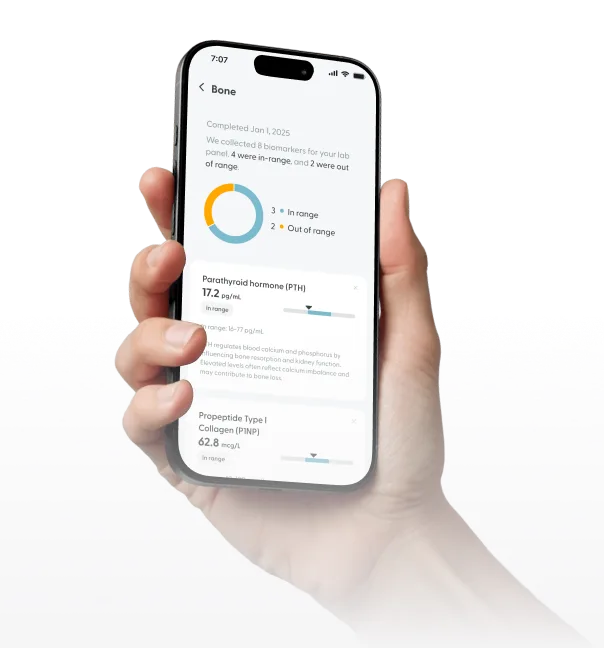Schedule
Book a telehealth appointment from wherever you are. No insurance necessary.
Achieve your weight-loss goals with GLP-1 treatments like Wegovy® and Zepbound®, guided by licensed providers every step of the way.
Personalized care for women, with HRT and lifestyle support to ease menopause symptoms and restore balance.
Simple, supportive mental health care on your terms, including access to prescription medication when appropriate.
Connect with board-certified cardiologists to help manage blood pressure, cholesterol, and long-term cardiovascular risk — from the comfort of home.
Care without the wait—connect 24/7 with licensed providers for same-day prescription refills and common concerns like colds, flu, rashes, and more.
Talk to a doctor anytime, anywhere — 24/7 urgent & primary care with a telehealth visit in under one hour.
Get your medication prescribed online and sent same-day to your local pharmacy for pickup.
Save time, money, and the hassle — no in-person visits or insurance required.


Prescription treatments are tailored to your specific condition, ensuring effective relief.

Urgent evaluation is crucial to identify your condition early and prevent complications.

Accurate testing, if needed, can confirm your diagnosis and guide the best course of treatment

Licensed providers can send prescriptions to your local pharmacy within an hour, day or night.

step 1
Book a telehealth appointment from wherever you are. No insurance necessary.

step 2
Meet with a board-certified doctor or nurse practitioner from your mobile device.

step 3
Get a prescription if needed (save up to 90%), and pick it up at your pharmacy.
Strep throat is a bacterial infection caused by group A Streptococcus bacteria. It’s characterized by a sore throat, difficulty swallowing, fever, and swollen lymph nodes in the neck. Strep throat is contagious and primarily spreads through respiratory droplets when an infected person coughs or sneezes.
Prompt diagnosis and treatment are essential to prevent complications and help reduce the spread of the infection.
Get Started Get Started
Total Cholesterol

37 mg/mL
In range

LDL (Low-Density Lipoprotein)

47 mg/mL
In range

Triglycerides

158 mg/mL
Above range

A penicillin antibiotic that’s often the first-line treatment for killing the bacteria that cause strep throat. Finishing the full course of antibiotics – even if symptoms improve before the medication is finished – is key to ensuring the infection is fully cleared.
The second-line treatment for strep throat if the patient has a penicillin allergy. As with Amoxicillin, completing the full course of antibiotics is very important.
Part of a class of antibiotics called cephalosporins. May be prescribed for strep throat if the patient is allergic to penicillin. Completion of the full course of antibiotics is crucial.
Strep throat is typically diagnosed through a rapid strep test or a throat culture. A healthcare professional will swab the back of the throat to collect a sample, which is then tested for the presence of group A Streptococcus bacteria.
Strep throat is caused by a bacterial infection, specifically the streptococcus bacteria, and antibiotics are typically prescribed to effectively treat the infection and prevent complications. If left untreated, strep throat can lead to potential complications such as tonsillitis, sinusitis, ear infections, and even rheumatic fever.
Therefore, it’s important to consult with a healthcare provider and follow the prescribed treatment plan – which usually includes antibiotics – to ensure a quick and full recovery from strep throat.
Strep throat is contagious until 24 hours after starting antibiotic treatment. If left untreated, it can remain contagious for 10 to 21 days. If you’ve been diagnosed with strep throat, it’s essential to practice good hygiene (such as covering your mouth when coughing or sneezing, and washing your hands frequently) to prevent the spread of the infection.
Yes, strep throat can worsen if left untreated or if not managed properly. Strep throat is caused by the streptococcus bacteria and is typically characterized by symptoms such as severe sore throat, fever, headache, and difficulty swallowing.
If it’s not treated with appropriate antibiotics, the infection can spread to other parts of the body, leading to complications such as tonsillitis, sinusitis, ear infections, and in rare cases, even abscesses or rheumatic fever. To prevent complications, it is essential to seek medical attention if you suspect strep throat, follow your healthcare provider's recommendations, and complete the full course of prescribed antibiotics even if your symptoms improve before finishing the medication.
Over-the-counter pain relievers, such as acetaminophen (Tylenol) or ibuprofen (Advil, Motrin), can help alleviate pain and fever associated with strep throat. Additionally, drinking warm liquids, using a cool-mist humidifier, gargling with warm salt water, and sucking on throat lozenges can help soothe a sore throat.
Yes, it’s possible to get strep throat more than once. Repeated infections may indicate exposure to someone who is a carrier of group A Streptococcus bacteria or that the initial infection was not fully treated. If you experience recurring strep throat, be sure to discuss your symptoms with a healthcare professional to determine next steps.
“Dr. Puopolo is a very knowledgeable doctor with vast experience in different medical fields. I feel I am in good hands.”
Verified Patient

“Great experience!! Never have done online telehealth before but for sure will again :)”
Verified Patient

“Dr. Culpepper was amazing. He explained things to me that I didn’t understand.”
Verified Patient

“Dr. Sehgal was amazing! Super helpful. She was answering my questions before I even asked. Very happy I picked her.”
Verified Patient

"The appointment went great. It was quick and easy, and the doctor was right on top of things!"
Verified Patient

Reviews shown are from verified LifeMD patients across various services. Photos are for illustrative purposes only.

Family Medicine
4.93 stars 170 reviews


Internal Medicine
4.98 stars 178 reviews


Internal Medicine
4.92 stars 261 reviews


Family Medicine
4.94 stars 178 reviews


Hormone Specialist
4.92 stars 163 reviews
